Process
Does it even exist, that perfect enticement to readers, that perfect pearl of a teaser which makes you instantly go to the counter and hand over your hard-earned cash? Perhaps not…but chances are that as an author—whether traditionally or self-published, whether this is your first or your fiftieth book—you’ll have to create, or help create, a back cover blurb for each of your books. And it’s something that in my experience takes some time—as you have to distill quite a few elements to make a sparkling blurb cocktail!
What exactly are those elements? Speaking both as a reader and a writer, for me a good back cover blurb includes:
Optional (but good to have at least one):
Also, style-wise, a good blurb should be:
Read MorePlease join us in welcoming new contributor Natalia Sylvester to Writer Unboxed! Born in Lima, Peru, Natalia Sylvester came to the U.S. at age four. A former magazine editor, Natalia now works as a freelance writer in Austin, Texas and is a faculty member of the low-res MFA program at Regis University. Her articles have appeared in Latina Magazine, Writer’s Digest, The Writer, and NBCLatino.com. Her debut novel, CHASING THE SUN, was named Best Debut Book of 2014 by Latinidad and was chosen as a Book of the Month by the National Latino Book Club. Her second novel, EVERYONE CARRIES THEIR OWN WATER, will be published in 2018. You can connect with Natalia on Instagram here. Welcome to WU, Natalia!
On the first week of the new year and for my first post as a regular contributor (hello, WU fam!) it seems only fitting to write about beginnings.
But not new ones. Not the fresh starts or the “New Year, New Yous” messages we are so often bombarded with this time of year. Not the literal and figurative blank pages that are so exciting-we-will-finally-get-them-right-this-time-omg-no-pressure-right?!
Because really, we’ve been here before.
How many January’s have unfolded before us, ripe with potential?
How many first lines, first chapters, first drafts?
How many times has the progress in our Works-in-Progress marched forward, only for us to end up back at square one?
Each time we start over, we find we know (more or less) what to expect. We know what the air smells like in January. We recognize the late-afternoon pastel sky and grey-white trees. But despite being packaged in the familiar, what the year will bring is unknown to us.
And so it goes with our stories. The process will be similar in some ways to the last one—a blank page blossoming into a draft that will be edited, and rewritten, and reworked. But we won’t really know what a story demands of us until it becomes what it’s meant to become.
We are all in different places in our paths, and yet, we will always be beginners.
Starting Over is Still Starting
I’ve been reminded of this countless times in my own writing and publishing journey:
When I signed with my first agent and the book didn’t sell, and I had to start over and write a new one. Faced with that new beginning, I was heartbroken, but once I got back to the writing I recognized that new story for what it was: a new source of hope. (It became my debut, but not my first, novel.)
When, years later, my agent submitted a revised version of that unsold novel to the publisher that had acquired Chasing the Sun, and they turned it down. That rejection, no matter that it wasn’t the first time I’d gotten it, hurt as much as a fresh wound.
When I finally moved on and wrote what I hoped would be my second published novel, only to learn that my agent and I had different visions for the story. After months […]
Read MoreThe title of this post isn’t actually a rhetorical question. I’d love to hear what other writers have to say to the question: do your characters talk to you while you’re writing their story? Because I know that answers vary. I know authors– wildly successful authors– who will give you a funny look and an, Uh, no, because they’re . . . fictional? response if you ask whether they hear their characters’ voices. I know other authors– also wildly successful– who swear that they’ve had entire books thrown into disarray by a particularly “noisy” character who refuses to cooperate with the planned story. I’ve also read books and articles on craft– some of them here on WU– that are fairly dismissive of the idea that a fictional character can, or should, influence the direction of a story. Writers, these articles suggest, should take responsibility for their own plots, be the captains of their own ship– and I’m not sure that I necessarily disagree.
But I do tend to hear my character’s voices. Now, I don’t think either answer to my question makes you more or less of a writer or better or worse as a storyteller. Every author is different, and everyone has to find the writing process that works for them. But I have had characters entirely hijack my plot before. Villains who insisted that they were going to reveal themselves as heroes in the end. Romantic pairings that I never planned for, because one character simply pointed to another inside my head and said, “I want that one.”
Read MoreIt’s the scenario every writer dreams of: #1 New York Times Bestsellers. Movie deals. Book deals for 10 novels, one after the next.
Who could ask for more? Yet in the crazy world of publishing, even this stellar trajectory does not necessarily translate into the professional or financial stability most people need.
That’s why Nicola Kraus, whose novels, co-authored with Emma McLaughlin, include blockbusters such as The Nanny Diaries, So Close, The Real Real and Nanny Returns, turned a page in her own career a few years back to add professional ghostwriting and editing into the mix. Ever fascinated by how writers leverage their unique creative skills into satisfying, sustainable careers, I caught up with Nicola recently to hear about her path. Her work has been a great source of inspiration to me, so I’m all the more honored to speak with her here today. Let’s dive in.
Q: You’ve written and co-authored 10 wildly successful novels, including the New York Times bestseller The Nanny Diaries — which was made into a movie starring none other than Scarlett Johansson. How did you make the jump from crafting fiction to editing and ghostwriting nonfiction?
NK: Well, it wasn’t so much a jump as an evolution with so many factors :) When my co-author Emma McLaughlin and I started publishing fiction in 2002 it was easier to sell enough primary and foreign rights that two people could split the revenue from one book and live in New York City. But after 2008 foreign sales became increasingly rare. Magazines stopped serializing fiction, and six-figure film sales were phased out in favor of four-figure film options.
If we had been one person living outside the city we would have been in great shape, but after we had children we were forced to make some tough decisions about what we wanted to be getting out of our time away from them. At that point our responses diverged. She decided to go back to corporate life and I decided to immerse myself in what I loved about writing in the first place: not just the craft, but the art and magic of it. I did that by starting to teach, or ‘coach,’ aspiring authors, giving myself the financial freedom to go back to making art for the creative pleasure of it.
Q: There are all sorts of misconceptions about what “ghostwriting” really means, and there seems to be a stereotypical notion that it involves sitting down and writing somebody else’s book from scratch. But I’ve seen all sorts of permutations, from helping authors get their first drafts into final shape to polishing already-solid manuscripts. Tell us how you work.
NK: Lol! No, I don’t put words in anyone’s mouths! I have manifold ways of working with clients. And they all stem from one fact: as publishers merged and were bought out in the oughts, houses started employing fewer and fewer editors, but published more and more titles. Meaning authors now need people like me to help them do what they could once have found within an in-house author/editor relationship. […]
Read MoreI think it’s natural, when you spend a huge chunk of life working at something, to develop specific preferences about the tools you use to make your work easier and/or a little more delightful. Since we’re in the holiday season, I thought I’d ask some of my favorite writers about their writing must-haves (anything from paperclips to creature comforts). Maybe one of their favorite things will give you an idea for your own wish list, or inspire the right questions to ask a writerly loved one in your quest to find them the perfect gift.
“Pentel Twist-Erase mechanical pencils, .9 mm lead, 2B (special ordered). I can’t function without them. Starbucks Pike’s Place decaf. A room of my own.” ~Sandra Gulland
“Those -roster-sized Post Its that stick to walls, Sharpies, Pilot V Ball Grip pens, a good pad of paper.” ~Tish Cohen
Read MoreAt the time this post is published, I’ll be at the Writer Unboxed UnCon in Salem, MA, where I’ll be leading a discussion on the impact of language on storytelling. So it seems appropriate to post something along the same lines, particularly given the interesting experience I had just prior to drafting this piece.
My daughter’s 30th birthday was several days ago, and as I prepared to shop for birthday presents, I asked a couple of female friends for book recommendations. One of those recommendations surprised me: The Velveteen Rabbit, the classic children’s book by Margery Williams.
The friend who recommended it – an educated and extremely intelligent woman who’s probably in her late thirties – said that she re-reads the book several times a year. I told her I had read it (or had it read to me) as a child, but couldn’t remember reading it as an adult. (Crap. This means I probably never read it to my daughter. Bad parenting, Keith. Bad parenting.)
My friend remarked that she had never read it as a child, but had discovered the book as an adult, and it remained one of her favorites. Intrigued, I bought an inexpensive ebook version of it, and read it in probably 15-20 minutes. It was a fascinating experience.
Getting reacquainted with a classic
First of all, I totally did not remember the story. I mean, I remember liking it as a kid, and had some vague recollection about it revolving around a toy that becomes shabby and worn, but I couldn’t recall any more details than that. So I was surprised multiple times by where the story went, including its conclusion (fear not – no spoilers).
Next, I was surprised that for a short book intended for children, the language is actually very adult, with a hint of subtly satirical humor that would have sailed right over my head as a child.
For a long time he lived in the toy cupboard or on the nursery floor, and no one thought very much about him. He was naturally shy, and being only made of velveteen, some of the more expensive toys quite snubbed him. The mechanical toys were very superior, and looked down upon every one else; they were full of modern ideas, and pretended they were real. The model boat, who had lived through two seasons and lost most of his paint, caught the tone from them and never missed an opportunity of referring to his rigging in technical terms. The Rabbit could not claim to be a model of anything, for he didn’t know that real rabbits existed; he thought they were all stuffed with sawdust like himself, and he understood that sawdust was quite out-of-date and should never be mentioned in modern circles. Even Timothy, the jointed wooden lion, who was made by the disabled soldiers, and should have had broader views, put on airs and pretended he was connected with Government.
I’m sure his kind of sophistication in a children’s book made it much more easy for parents to endure when being asked to read the story aloud for the umpteenth time. In that respect, I think Ms. Williams’ book set an example that we see widely adopted today in the CGI-animated […]
Read Morewoodleywonderworks, Flickr’s Creative Commons
Our guest today is Virginia Franken. Born and raised in the United Kingdom, Virginia now lives in suburban Los Angeles with two kids, a dog, an overweight goldfish, and one bearded dude, in a house that’s just a little too small to fit everyone in comfortably. She gets most of her writing done when she should be sleeping. Life After Coffee is her first novel.
After getting into a wrestling match with my latest draft and then getting my butt kicked, I spent way too long trapped inside my own head, wondering where I’d gone wrong. So I thought I’d do what I tend to do with all the issues that make me crazy and send me screaming to my keyboard: I wrote it out.
Connect with Virginia on Twitter and Facebook.
Turn Off the Static So You Can Hear the Tiny Whisper
Last week I hit “delete” on the first 30,000 words of my second novel. A novel that my agent is eagerly waiting for. Trashed. All of it. Ok, I didn’t actually click “move to trash,” but I certainly firmly slid the thing into the “not currently working on,” folder. Same thing. Those dear little 30,000 or so words are not going to become a book.
This is not my first heartless cull. You could go as far as to say that trashing thousands of words is part of my writing methodology. However, since I wrote my first book I’ve obtained one more kid, a longer commute, more responsibility at my day job and I’m starting to realize: If I’m going to continue to do this, I have to be more efficient. Time is precious. My words are precious. My agent is patiently waiting.
So where did I go wrong? And more importantly, how can I—and you—learn from my mistakes.
After a bit of all-night insomnia and a few mopey days off from writing, I figured out there was one major reason why my draft chocked. I realized I was trying to write someone else’s story. The story of a collection of people whose lives had caught my attention for a brief moment. And indeed, they were enthralling in that moment. But it was just a passing moment. Not a whole novel. There was a clueless pig farmer, a woman who ran away from the world to hide in a river house in rural California, baby boomer parents behaving very badly, a cursed hot spring. All good stuff. But ultimately it wasn’t enough. It’s definitely ok to write about what you don’t yet know about. But it’s not ok to write about what you really don’t want to know about! Or, as in my case, are truthfully not that interested in finding out about. I realized I wasn’t interested in learning about homesteading, pig rearing, crop rotation, epithermal veins. At one stage I realized I was going to have to go to check out an actual beehive—with REAL BEES in it—and I just kept stalling. I hate bees! In fact, I’m a bonafide apiphobe. But the way I’d tangled my characters into odd plot knots meant that bee keeping was essential […]
Read Moreht Buzzfeed
Raise your hand if you find yourself clicking all of those little videos on social media? Maybe you don’t even click them, but they start playing automatically and next thing you know, you’ve wasted five minutes on a baby smearing yogurt on their face, a goat “laughing,” or a SNL skit of the latest debate reenactment. I find myself increasingly drawn to these videos and I’m not sure why—I don’t even like TV much. In fact, I tend to get bored by it rather quickly. So what is going on here? Why am I—and most of us—drawn to these cutesy little gimmicks designed to grab our attention? What’s more, how can we apply that reasoning to our manuscripts? (Because, let’s face it, we need to draw our readers in just as easily, and delight them to keep their interest.) There’s something to learn from these videos…
Characters need rest (and so do readers): Your characters should be undergoing a series of tests constantly, but they do need a break from the shit-storm of tension and stakes, and the myriad of emotional horrors you’re throwing at them. These rest periods are true to life, for one, but the other reason is, your readers need a break as well. They need time to process what’s happening to the character, and time to watch the m.c. grapple internally with all that has happened to them.
For example, take the movie The Revenant with Leonardo DiCaprio. One horrific thing happens after another, so that by the time you hit the climax—or the supposed climax—you’re fairly inured to both the violence and the m.c.’s struggles. As the viewers, we haven’t had that real ‘coming down’ period to digest these traumas, or seen the protagonist digest them either. The events in that movie may have been true-to-life, but in fiction, we need transition scenes and rest periods to watch the character grow and deepen. Or, as I like to say, the m.c. needs “to catch a breath” and gather their strength for the next mishap headed their way.
Read MoreA lot of people I know want to be writers but don’t have a practice of writing. Maybe they had one once and lost it. Maybe they’re just getting started in the craft. Either way, they don’t regularly carve out space and time to put words on the page, but they wish they would. It’s easy to understand why they don’t: life interferes. Maybe it’s a job. Spouse. Kids. Obligations can take many forms.
Often, obligations form a secret conspiracy with a writer’s fear to keep that writer from writing. The logic goes like this: I’ve already invested such time, energy, brain, or sweat today into [INSERT OBLIGATION HERE] that I’m totally justified in just chillin’ like McMillan and not feeding my need to write.
Justified, yes. Happy, no. Why? Because that need needs to be fed and it won’t shut up when it’s hungry. This puts many a writer in a tough, tough spot: We want to write but we fear to write. If you’re in this bind, my heart goes out to you, and I really want to help you over the hump and into, or back into, your active practice of writing.
Often all it takes is a catalyst, a little exercise you can do that will transition you easily and painlessly from not-writing to writing. Fortunately, I have just such a tasty template right here. Simply follow these steps:
1/ Recognize the conspiracy between outer events and the inner fear to write. Recognize that we often use the excuse of [OBLIGATION] and many, many other excuses to serve our fear of writing and impede our practice. Nothing can be done about that. Fear is part of the package, a standard accessory in most writers’ lives.
2/ Acknowledge this fear and move on. Recognize and accept that you’re in a “gentle conspiracy of non-productivity.” Now get over it. That’s yesterday’s news. Today’s news is all about moving on.
3/ Set up a writing day and time. Put it in your calendar. This isn’t a lifetime commitment, just a one-off. And here’s good news: For this exercise, even a half-hour window will do.
4/ Set an appropriate goal for that time. You only have half an hour; you won’t be writing War and Peace. What you will be doing is experiencing or re-experiencing yourself as a writer. Without value judgments. Without any investment in outcome at all. Your appropriate goal is just this: to feel how it feels to write.
5/ Set a doable task, something you can get through in half an hour. One I like is the exploration of an explosive moment of change.
6/ Now here comes the (easy) writing part. (Easy because the goal and target are so clear.) First thing, create a new character. Any one will do, so make any old choice. You might call him or her Sam.
7/ Assign your character an emotional state. Sam is sad.
8/ Now just ask yourself this simple question: What could change your character’s emotional state? It’s Sam’s surprise birthday!
9/ Next, note the new emotional state. Sam is happy.
10/ And that’s a moment of explosive change: a transformation from one emotional state to another, facilitated by a new piece of information. Write one page about that.
Well, there it […]
Read More
Do you ever feel paralyzed at the outset of revising a manuscript? I usually do. For me, it’s due to the sense of scope. I mean, there’s so much to be done, right? It can feel overwhelming.
Take my new project. The manuscript will be the middle edition in a planned trilogy, based on a lengthy older story. It’s not a separate story yet. In its current form, the opening is just another chapter that happened to come after the events that formed the end of part one. To add to that difficulty, I’ve spent the last two and a half years revising what’s now become part one. Quite a few things have changed. The overarching goals haven’t changed for the major characters, but their motivations have either altered or deepened. Not to mention about a hundred story details that have changed (many are inconsequential, but consistency must be maintained).
For me, incorporating critique is always a part of the overwhelm of the revision process, too. We’ve all heard it, right? Take in what resonates and dismiss the rest. But what if it resonates that you indeed have a problem (or four, or six), but you aren’t quite sure how to solve it (them)? Or if solving one will likely create others? Muddling the puddle even further for this project, I have received critique on the original complete story (before dividing it), as well as additional (new eyes) critique on the part one portion.
Reconciling it all can be tricky. I always need a “pondering period,” but inaction is obviously no solution. At some point pondering alone can become unproductive, or worse, lead to procrastination. And for me, simply diving in to another comma-shuffling editing session can be a diversion from meaningful revision.
So what’s an overwhelmed, pondered-out and paralyzed writer to do?
Stumbling Into the S-Word
Actually, this time I stumbled upon proactivity. Just to make my way from pondering to actual words on paper, I went through the middle section of the lengthy original manuscript and listed each chapter, briefly noting what happens in each. All I thought to gain was a simple status report. It certainly helped me to grasp the sweep of book two. Plus, I saw where I wanted to end up, which is huge. I could see the events that might be shaped into a resolution. Of course it would take work, particularly finding my way to a satisfying story arc for my primary protagonists as they moved into the final edition of the trilogy. But I’d taken a step.
And, as proactive steps often do, this one led to another.
Read MoreRecently, a friend mentioned that writing a novel must take an enormous amount of confidence. He said it like it was a given, and I was stunned by the concept. I have published two books, I’m editing the third, and there’s another I’ve been working on in stolen moments for several years. But if you asked me to list words to describe myself, confident would not be in the top ten, or twenty, or even the top hundred.
I should probably only speak for myself, but I always consider writing to be something of a consolation prize (a beautiful, glittering, wonderful consolation prize) for being the sort of person who was always picked last for kickball in gym class. I got a particular thrill one day when it dawned on me that us quiet types — the wallflowers, the observers, the odd ducks — are the ones who get to leave stories behind. We get the final word on how things happened. We’re the ones keeping the record. I carry that thought near and dear, but I never considered the writing of those stories to be an act of confidence.
In fact, my first book started after my confidence had been ripped to shreds in a writing group I’d joined just after graduating from college. A woman in the group went off on me with spectacular cruelty. Or at least that’s how it felt at the time. I have to admit that the space the incident occupies in my mind is thick and partially blank, but I walked away believing that she’d said my main character didn’t have any redeeming qualities and quite frankly, the same could be said for me. At twenty-five, I was an older college grad, but a new writer, and while I’d never taken a class with the woman railing against me, she taught at my alma mater. I felt like she would know. That her thoughts were somehow more important than mine. She was a grown up. I still felt like a kid. She had a PhD. I had dropped out of college and worked at a biker bar before I finally hauled myself back to school. There were gaps in my education. There were clearly gaps in my ability, and maybe even in my validity as a human being. Why else would she say that? I remember when I walked to my car, two people from the group told me not to take her seriously and not to give up. But I did. I quit writing, certain there was no point.
Read More
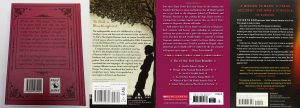



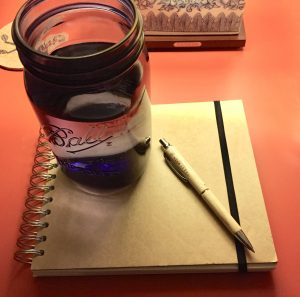

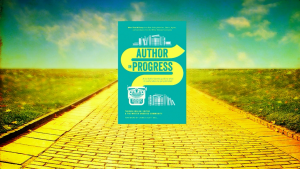


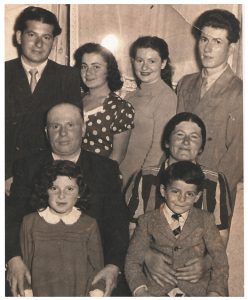
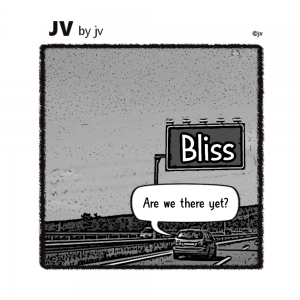










The Dreaded Editorial Letter
By Rodger Evans, via Flickr’s CC
Please welcome back guest Densie Webb whose first novel is You’ll Be Thinking of Me. Densie is currently working on novels two and three, and she’s also a nonfiction writer/editor, mainly about health and nutrition. She has written for The New York Times, Parade, been a columnist for Prevention, Family Circle and now writes for industry and trade organizations. She added fiction to the mix about six years ago and never looked back. She is a member of the Women’s Fiction Writers Association, SheWrites, the Romantic Novelists’ Association and the Romance Writers of America. She’s a music lover, walker (not of the dead variety), dreamer, warm-weather enthusiast, and has now acquired all of the usual writer quirks, including the uncontrollable urge to write about people and things that live only in her head. Connect with Densie on Facebook and on Twitter.
The Dreaded Editorial Letter
I recently received the Editorial Letter from my developmental editor for my second manuscript. Eight debilitating pages, single-spaced, in addition to imbedded comments on almost every page. As you probably know, either from experience or hearsay, editorial letters can be traumatic. They are not for the faint of heart or the easily discouraged, but they are a necessity. Don’t let anyone convince you otherwise.
With my first manuscript, I waited a month before I worked up the courage to open The Letter (without a deadline, I was afforded the luxury). This time, however, I ripped off the Band-Aid and clicked “open” with equal parts excitement and trepidation.
It was like someone telling me I’m beautiful, while punching me in the gut, knocking the air out of my lungs. As with any good editor or critiquer, my editor provided positive feedback “This is a WONDERFUL framework for what I think can be a compelling, romantic and affecting story.” But there were lots more, “What is this?” “I don’t understand?” “This is a recap.” “How does this move the story forward?” And plenty of, “Why?” “Why?” “Why?”
On your first read through said letter, thoughts of self-flagellation may be front and center—as they were for me—as well as doing harm to said editor. (How dare she call my protagonist weak?) It’s only after you’ve had time to digest your editor’s words will you be able to step back and nod in hearty agreement and forgive them their perceived sins, even if you haven’t a clue how you’re going to address any of it.
Not long after receiving my letter, I enrolled in and binged on Aaron Sorkin’s Masterclass on scriptwriting. He said that he himself always works with someone to get advice on what needs to be “fixed” in his drafts. And he said that he always nods in agreement during the meeting. But, he also said, and I’m paraphrasing here, “By the time I’ve left the office and am pushing the down button on the elevator, I want to kill myself, because I have no idea how I’m going to fix anything.” Even the esteemed Mr. Sorkin finds the process difficult.
Everyone’s approach to addressing the Editorial Letter is different, just as everyone’s approach to writing differs. Granted, this is only my second time up at bat, but I […]
Read More